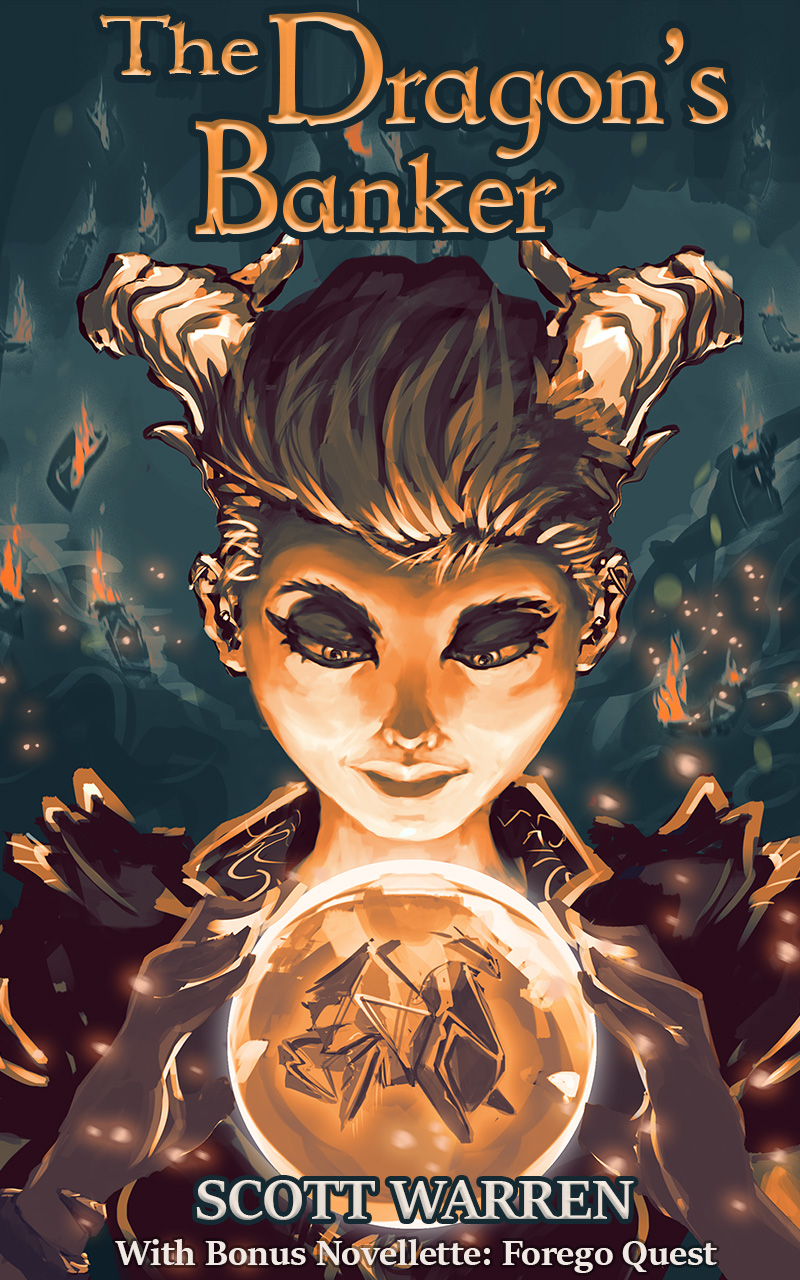The Dragon's Banker

Review
The Dragon’s Banker is a standalone novel by . It tells the story of Sailor Kelstern, a banker in a fantasy world who, as the title suggests, is hired by a dragon.
One of my favorite niche sub-genres of fantasy1 explores the question: What if a dragon used their intellect, riches, and magic to subtly shape the world instead of charging in and breathing fire. I thought The Dragon’s Banker fell squarely into this sub-genre; unfortunately I was wrong.
The surface premise is this: the world is transitioning from precious metal to fiat currency. The dragon lord Alkarzarian, unbeknownst to anyone, is the richest being in the world, but he is worried he will lose that spot if paper money takes off. So he sends his daughter, Arkelai, to find a banker to help put his hoard to work.
I think this would have been a really interesting story, and it is the story I thought I was reading in the first part of the book. However, that is not what The Dragon’s Banker is about.
At the end, it is revealed in a note from Arkelai that they chose Kelstern because they thought he was as greedy as a dragon. They assumed he would wage economic war against the other banks and merchants when they bankrolled him, allowing the dragons to swoop in and pick up the pieces. But Kelstern was too honorable: taking care of his employees, treating people with respect, and paying taxes on his ventures.
So the dragons try to provoke him into conflict. Alkarzarian’s son turns the other merchants against Kelstern, ensuring the failure of all his enterprises. Yet Kelstern persists, causing Arkelai to realize she couldn’t continue to betray the honorable banker. Luckily, she had learned about short-selling from Kelstern, which leads to a new plan: take large short positions in many different companies, and burn them to the ground.
I enjoyed the parallels between Kelstern and the dragons. Kelstern is the narrator, and his descriptions of people always focus on their precious metals: gold teeth, silver embroidery, copper spectacles, platinum necklace.
I was hoping Kelstern would “win” by coming up with a clever, heist-like plan, or that the dragons would use their superior intellect to do so. Instead, the dragon’s plan became too simple: burn things.
There is also a slight inconsistency: the dragons’s plan was to profit off the human economic system, but they also transferred several pieces of technology that revolutionized the empire, like fuel-free heat, new ship designs, and refrigeration. Perhaps the dragons’s real motivation was to move humanity forward? But if so their other behavior seems too misanthropic for that.
While a fun read, the story is far from perfect. In my ideal dragon story, the fact that the dragon can breathe fire would make no difference and in this one it was vital.
-
My longest running tabletop roleplaying game was based on this premise, so it is one that is near and dear to my heart. ↩